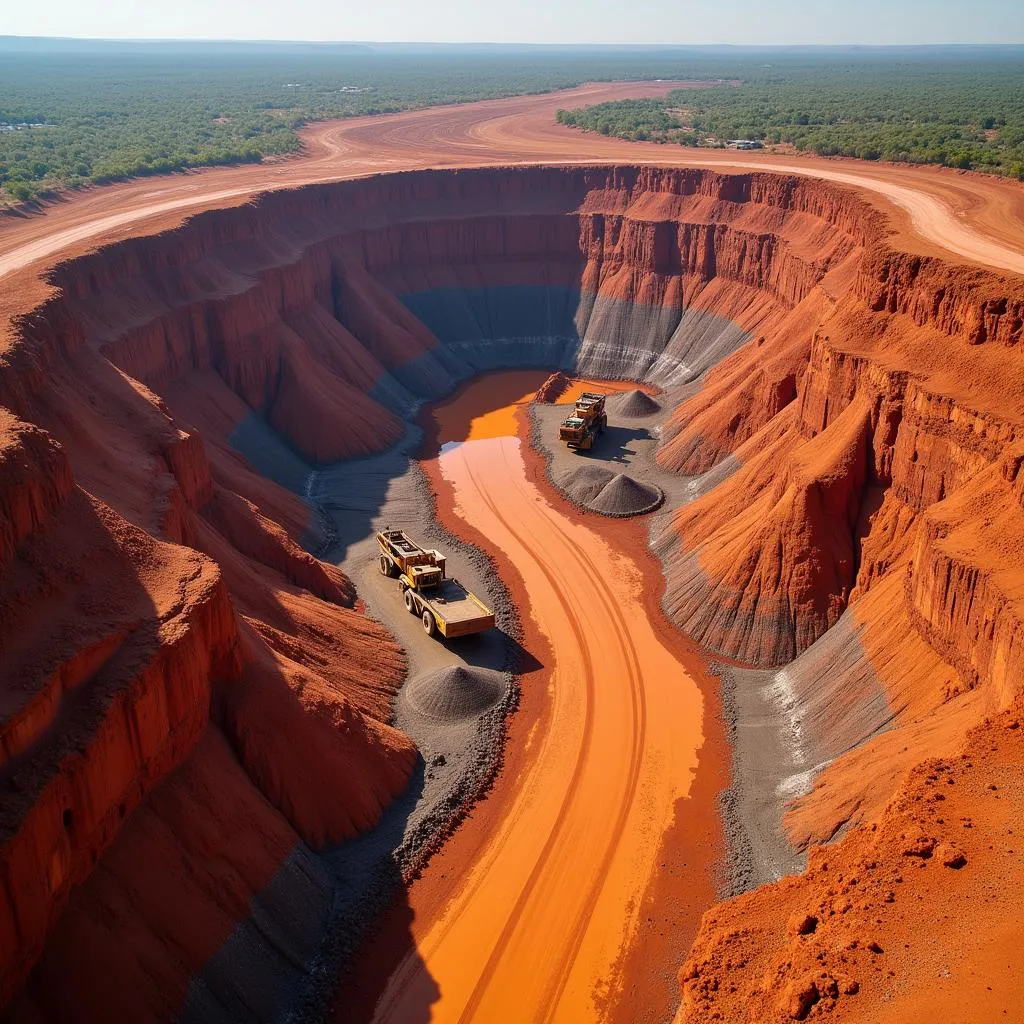African Copper Botswana: A Deep Dive into the Country’s Copper Legacy
Botswana, a landlocked country in Southern Africa, is renowned for its captivating landscapes and abundant wildlife. However, beyond its natural wonders lies a treasure trove of mineral resources, with copper playing a pivotal role in shaping the nation’s economic landscape. This article delves into the depths of Botswana’s copper industry, exploring its history, significance, and future prospects.
 Aerial View of a Copper Mine in Botswana
Aerial View of a Copper Mine in Botswana
A Glittering History: From Ancient Times to Modern Mining
Copper’s presence in Botswana can be traced back centuries, with evidence suggesting that ancient communities engaged in small-scale copper mining and smelting. Archaeological sites scattered across the country bear witness to this early copper heritage, showcasing the resourcefulness and ingenuity of Botswana’s ancestors.
The modern copper mining era commenced in the 1960s, shortly after Botswana gained independence. The discovery of vast copper-nickel deposits near Selebi-Phikwe marked a turning point, propelling the nation into the global copper market. Since then, Botswana has emerged as a significant copper producer, contributing significantly to the global supply chain.
Economic Engine: Copper’s Contribution to Botswana’s Prosperity
Copper mining has been a cornerstone of Botswana’s economic growth, transforming the nation from one of the world’s poorest at independence to an upper-middle-income country today. The industry has generated substantial revenue, creating employment opportunities, and fostering infrastructure development.
Revenues from copper exports have fueled investments in education, healthcare, and social welfare programs, significantly improving living standards for many citizens. The government’s commitment to responsible resource management has ensured that copper wealth benefits both present and future generations.
Beyond Extraction: Value Addition and Sustainable Practices
Botswana recognizes the importance of moving beyond mere copper extraction and is actively pursuing value-addition initiatives. The country is investing in downstream industries such as copper processing and manufacturing, aiming to create a more diversified and resilient economy.
Moreover, Botswana is committed to sustainable mining practices. The government has implemented stringent environmental regulations to minimize the ecological impact of copper mining. Collaborative efforts between mining companies, local communities, and environmental organizations are underway to ensure responsible land use, water management, and biodiversity conservation.
Looking Ahead: Copper’s Role in Botswana’s Future
As Botswana continues to develop, copper will undoubtedly remain a vital resource. The country is exploring new mining technologies and strategies to enhance efficiency and productivity. Furthermore, ongoing exploration activities hold the promise of uncovering additional copper deposits, further bolstering Botswana’s position in the global market.
However, challenges remain. Fluctuations in global copper prices, environmental concerns, and the need for continuous investment in infrastructure are factors that Botswana must navigate effectively. The country’s commitment to good governance, transparency, and stakeholder engagement will be crucial in ensuring the long-term sustainability of its copper industry.
 Display of Copper Products Made in Botswana
Display of Copper Products Made in Botswana
Conclusion: A Legacy of Copper, a Future of Prosperity
Botswana’s copper legacy is a testament to the country’s rich natural endowment and the transformative power of responsible resource management. As Botswana continues to leverage its copper wealth for sustainable development, the future appears promising. By embracing innovation, collaboration, and sustainable practices, Botswana is poised to maintain its position as a leading player in the global copper arena while ensuring a brighter future for generations to come.

